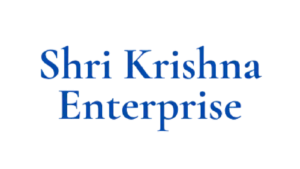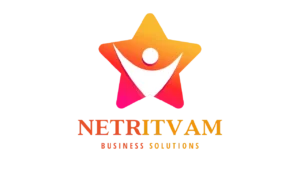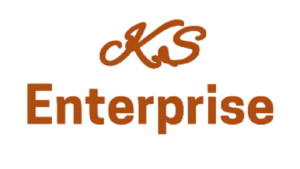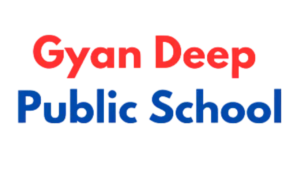Restaurants, cafes, & Pubs
Catering Companies
Fast Food Restaurants
Food & Beve. Manufacturing
The food and beverage industry operates in a highly dynamic environment where efficiency, compliance, and quality control are critical to success. Managing everything from inventory, production, supply chain, and distribution to regulatory requirements can be challenging without the right technology. This is where ERP for food and beverage industry solutions play a vital role. A robust food and beverage ERP system enables businesses to streamline operations, improve traceability, reduce waste, and ensure consistent product quality while maintaining compliance with industry standards.
In addition to core ERP functionalities, integrating solutions like the Odoo POS system further empowers food and beverage businesses by streamlining front-end operations, enhancing customer experiences, and ensuring seamless connectivity with backend ERP processes.
Odoo Point of Sales
Odoo POS is a flexible solution made for frozen food stores, bars, cafes, and quick-service restaurants. It simplifies operations by offering features like kitchen receipts for food preparation. Beyond the POS, Odoo’s backend modules manage inventory, accounting, HR, CRM, and expenses seamlessly. With built-in eCommerce functionality, restaurants can easily set up menus for takeaway and home delivery. Odoo ERP is an all-in-one platform providing insightful analytics, sales and inventory reports, and comparison charts with dynamic filters. These tools empower businesses to make informed decisions, improve weak areas, and streamline processes for better efficiency and growth.
The Key Features of Odoo ERP for Food & Beverage Industry
- Manufacturing Cycle
- Manufacturing workflow Mapping
- Master Production Scheduling
- Material Procurement Planning
- Pre-Production Quality Audit
- Quality Control
- Supplier Relationship Management
- Product shelf Life Evaluation
- Batch/Lot Serial Number
- Order Fulfillment
- Logistic Labels
- Shipping Integration
Why Choose Odoo's Food and Beverage ERP?
- Comprehensive Solution: You may manage every aspect of your business using Odoo ERP. It is the customized platform that increases growth and efficiency highlighted by improving customer experiences and streamlining operation processes.
- Easy to Use Interface: User-friendly interface so easy that even people without technical background can use it. Solutions that are customizable to the unique requirements of the company.
- Cost Effective: Odoo has very powerful features that give high return on investment in cost effective solutions.
Problems
- Stock Inventory Management: Some of the items spoil faster than others which make the stock management very difficult. Companies may as well run out of stock or have excess product which eventually leads to wastage or shortage, thanks to the poor tracking system.
- Recipe Management: It can be very confusing and time-consuming to track recipes and formulas while altering them for the lots that need to be produced.
- Regulations: The well-defined rules pertaining to food safety, labeling, and traceability would apply to the industry. If these regulations were to be contravened, penalties would be meted against the organization and its image could suffer.
- Complex Supply Chains: There is great difficulty in coordinating all these with various suppliers, distributors, and retailers. There can be delays or inefficiencies in this process that may affect the business.
- Quality Control: Products should meet quality requirements, and this is also important to check manually, which is time-consuming, if it doesn't lead to errors.
- Batch Production: Most foods are produced in batches, but without proper automation in place, there might be inconsistency and reduced speed in production processes.
- Demand Prediction: The estimation of the quantity to be produced is very vital for the industry. Old techniques usually bring forth overproduction or underproduction.
- Financial Management: Management for income, expenses, and profits can be made quite complex and requires highly accurate systems.
- Data and Reporting: Quick accesses to data and reports facilitate correct and well-timed decisions. Manual systems lead to delay and errors in such activities.
- Traceability: In the event of a quality issue, tracking the source of ingredients and finished products can be difficult.
Solutions
- Inventory Management: ERP system gives a clear view of stock in the present time. Therefore, businesses will maintain optimum stock levels, reduce wasted products, and ensure that products are always available.
- Recipe and Formula Management: With ERP systems, recipes and formulas can be managed more precisely. Their quality can be kept consistent for a product, and scaling of production can be simplified, with changes recorded in version control.
- Regulatory Compliance: ERP systems include built-in compliance tools that assist companies in meeting regulatory standards. This pertains to the correct labeling, correct documentation, and integrated traceability of products.
- Supply Chain Management: Because the ERP system manages supplier relationships, forecasts demand, and optimizes logistics, the chain becomes very simple because of the complex supply chains integrated with the ERP system. That translates into high efficiency and low costs.
- Quality Control: It has made quality control easy by automating inspections, recording compliant data, and alerting teams deviating from established quality standards.
- Batch Production: The entire process of batch production is made easier by the ERP system because it automates production scheduling, tracking, and documentation for consistency and compliance.
- Demand Forecasting: ERP systems use data analytics and past trends to facilitate more accurate demand forecasting, thereby aligning production more with actual need.
- Financial Management: Budgeting, cost analysis, revenue analysis, and financial reporting with ERP tools offer companies increased transparency and added profitability.
- Data Visibility and Reporting: Strong reporting and analytics capabilities provided by ERP systems allow stakeholders to access important information and make informed decisions.
- Product Traceability: ERP systems permit businesses to very easily trace raw materials and products, thereby easing recalls and compliance processes.
Impact of ERP for Food and Beverage Industry
- 30% Reduction in Wastage: By implementing real-time inventory tracking, our client drastically reduced spoilage and overstock issues.
- 25% Faster Order Fulfillment: Automated workflows streamlined operations, cutting down manual effort and improving service speed.
- Consistent Product Quality: Standardized recipe management and automated quality checks ensured every batch met the same high standards.
- 100% Regulatory Compliance: With built-in compliance and traceability tools, the client achieved full adherence to food safety and labeling regulations.
- 20% Cost Savings in Supply Chain: Centralized supplier management and logistics optimization minimized delays and reduced procurement costs.
- Accurate Demand Forecasting: Data-driven insights helped the client align production with demand, reducing underproduction and overproduction.





















